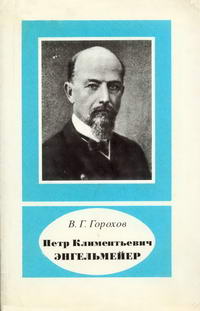Gilbert Simondon: Being and Technology (2012)
Filed under book | Tags: · ontology, philosophy, philosophy of technology, technical object, technology, transduction, transindividual

“The first sustained exploration of Simondon’s work to be published in English.
This collection of essays, including one by Simondon himself, outlines the central tenets of Simondon’s thought, the implication of his thought for numerous disciplines and his relationship to other thinkers such as Heidegger, Deleuze and Canguilhem.
Complete with a contextualising introduction and a glossary of technical terms, it offers an entry point to this important thinker and will appeal to people working in philosophy, philosophy of science, media studies, social theory and political philosophy.
Gilbert Simondon’s work has recently come to prominence in America and around the Anglophone world, having been of great importance in France for many years.”
Contributors: Miguel de Beistegui, Elizabeth Grosz, Anne Sauvagnargues, Bernard Stiegler, Igor Krtolica, Jean-Hugues Barthélémy, Yves Michaud, Sean Bowden, Dominique Lecourt, and the editors.
Edited by Arne De Boever, Alex Murray, Jon Roffe, Ashley Woodward
Publisher Edinburgh University Press, 2012
ISBN 074864525X, 9780748645251
236 pages
via lastobserver
review (Wil Kaiser, H-Net Reviews)
Comments (3)Vitaly G. Gorokhov: Peter Klimentjevich Engelmeyer: Mechanical Engineer and Philosopher of Technology, 1855-1941 (1997) [Russian]
Filed under book | Tags: · biography, engineering, philosophy of technology, russia, technology

P. K. Engelmeyer was an engineer, philosopher of technology and creativity, encyclopedist, musician and painter. In his time, he belonged to the influential engineers, consultants, contractors and representatives in national and international technical organizations.
Inspired by the writings of a number of philosophers (Ernst Mach, Ernst Kapp, Alfred Espinas, Fred Bon), Engelmeyer set out to contribute to the emerging field of philosophy of technology. In 1898, he published the book Technical Summary of the 19th Century, in which he outlined main tasks and the program of the philosophy of technology.
He used the concept of “technology” [техника] in a broad sense to signify all the human knowledge and skills aimed at practical goals. In this sense, “technology” included: firstly, applied mechanics, physics, chemistry; secondly, the mechanical and chemical technology, metallurgy, architecture, art of engineering of buildings, shipbuilding, fortification; thirdly, all crafts; fourthly, agricultural technics; and finally, social and moral reasoning.
В книге описывается жизнь и деятельность выпускника Императорского Московского технического училища, инженера-механика и изобретателя, выдающегося философа техники, создателя теории технического творчества и автора первых русских работ по привилегированию изобретений Петра Климентьевича Энгельмейера. Годы жизни Энгельмейера пришлись на сложный период российской истории после отмены крепостного права и развития промышленной России вплоть до Великой Отечественной войны. Его судьба тесно связана с судьбой российского инженерного корпуса. В связи с этим в книге исследуется развитие профессиональной организации инженеров (прежде всего Московского политехнического общества, Императорского Русского технического общества, Всероссийской ассоциации инженеров) в России, их гуманитарной деятельности и связей с такими обществами в других странах (прежде всего с Союзом немецких инженеров), а также высшего технического образования. Исследуется возникновение философии техники как нового направления научно-философской и инженерной мысли в конце IX — начале XX в. Рассматриваются многочисленные труды П. К. Энгельмейера по философии техники, теории творчества, изобретательства, проектирования и др. Для читателей, интересующихся историей российского инженерного корпуса, философией техники и теорией творчества.
Русский инженер и философ техники Петр Климентьевич Энгельмейер (1855–1941)
Publisher Nauka, Moscow
223 pages
PDF (DJVU)
Engelmeyer at Monoskop wiki
Henning Schmidgen: Das Unbewußte Der Maschinen: Konzeptionen Des Psychischen Bei Guattari, Deleuze Und Lacan (1997) [German]
Filed under book | Tags: · desiring machines, machine, philosophy, philosophy of technology, psychoanalysis, technology

25 Jahre nach Erscheinen des «Anti-Ödipus», jener furiosen Abrechnung mit Strukturalismus, Marxismus und Psychoanalyse à la française von Gilles Deleuze und Félix Guattari, sind die dereinst gefeierten oder heftig befehdeten «Wunschmaschinen» erneut Thema. Frei von Exaltationen der damaligen Rezeption, fast aufreizend nüchtern rekonstruiert Henning Schmidgen den Maschinenbegriff der Autoren, wobei er den meist vernachlässigten Guattari in den Vordergrund rückt. Das ist solide, aber bleibt thematisch eng und dürfte wohl nur Experten interessieren. Anschlüsse zur zeitgenössischen Technikphilosophie werden angedeutet, nicht ausgeführt; das gleiche gilt für Bezüge zu Heidegger oder Parallelen zu Bloch. Von grösserem Interesse ist sicher, was der Autor über die Beziehungen zwischen Guattari und Lacan zu sagen hat. Den nicht so sehr am «Anti-Ödipus» Interessierten sei der Teil über Lacan ans Herz gelegt: ein sorgfältiger Nachvollzug des von Lacan im Kontext seines Seminars über E. A. Poes «Entwendeten Brief» unternommenen Versuchs, Freuds Wiederholungszwang als Wiederholungs automatismus zu rekonstruieren. Dass es Schmidgen gelingt, Lacans Analyse der Regularitäten von Wiederholungsvorgängen mittels Symbolgruppen verständlich zu erklären, ist dem Autor hoch anzurechnen.
Publisher Wilhelm Fink Verlag, Muenchen, 1997
ISBN 3770531957, 9783770531950
188 pages

